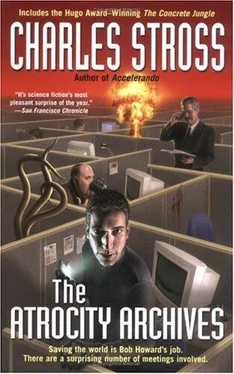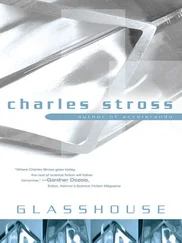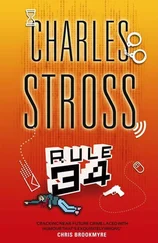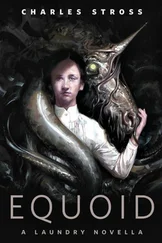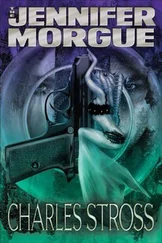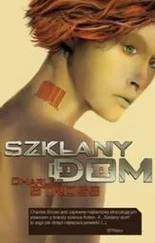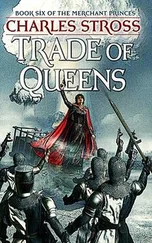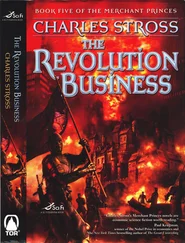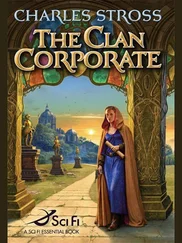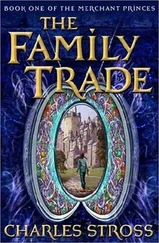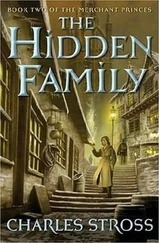Charles Stross - The Atrocity Archives
Здесь есть возможность читать онлайн «Charles Stross - The Atrocity Archives» весь текст электронной книги совершенно бесплатно (целиком полную версию без сокращений). В некоторых случаях можно слушать аудио, скачать через торрент в формате fb2 и присутствует краткое содержание. Жанр: Киберпанк, на английском языке. Описание произведения, (предисловие) а так же отзывы посетителей доступны на портале библиотеки ЛибКат.
- Название:The Atrocity Archives
- Автор:
- Жанр:
- Год:неизвестен
- ISBN:нет данных
- Рейтинг книги:3 / 5. Голосов: 1
-
Избранное:Добавить в избранное
- Отзывы:
-
Ваша оценка:
- 60
- 1
- 2
- 3
- 4
- 5
The Atrocity Archives: краткое содержание, описание и аннотация
Предлагаем к чтению аннотацию, описание, краткое содержание или предисловие (зависит от того, что написал сам автор книги «The Atrocity Archives»). Если вы не нашли необходимую информацию о книге — напишите в комментариях, мы постараемся отыскать её.
The Atrocity Archives — читать онлайн бесплатно полную книгу (весь текст) целиком
Ниже представлен текст книги, разбитый по страницам. Система сохранения места последней прочитанной страницы, позволяет с удобством читать онлайн бесплатно книгу «The Atrocity Archives», без необходимости каждый раз заново искать на чём Вы остановились. Поставьте закладку, и сможете в любой момент перейти на страницу, на которой закончили чтение.
Интервал:
Закладка:
As for the war in Iraq, I make no apologies. The novel was written in 1999-2000, and should be taken as set in 2001, before the events of 9/11.
On the other side of the narrative fence from our friend the spy stands our enemy, the destructive Other. The Other comes in a variety of guises, but always means us ill in one form or another. It might be that the Other wants to conquer and subjugate us, enforce our obedience to a religion, ideology, or monarch. Or the Other might simply want to eat our brains, or crack our bones and suck our marrow. Whatever the goal, it is defined in terms profoundly incompatible with our comfort and safety. Sometimes ideology and alienation overlap in allegory; the 1950s classic Invasion of the Body Snatchers was superficially about invading aliens, but also served as a close metaphor for Cold War paranoia about Communist infiltrators. Meanwhile, The Stepford Wives tore away the mask of an outwardly utopian vision of a conformist community with everyone in their place to reveal a toe-curlingly unpleasant process of alienation worming its way beneath the skin.
There is this about horror: it allows us to confront our fears, dragging the bogeyman out of the closet to loom over us in his most intimidating guise. (The outcome of the confrontation depends on whether the horror is a classical tragedy-in which the protagonist suffers their downfall because of a flawed character and hubris-or a comedy-in which they are redeemed; but the protagonist is still tainted with the brush of horror.)
And there is this about spy fiction: it allows us to confront our ignorance, by groping warily around the elephant of politics until it blows its trumpet, or perhaps stamps one gigantic foot on the protagonist's head. (Again, the outcome depends on the tragicomic roots of the narrative-but it still all hinges on ignorance and revelation.)
And now for something completely different.
HAX0R DUD35
The fictional hacker is not a real computer geek but a four-thousand-year-old archetype.
There have been trickster-gods running around administering wedgies to authority figures ever since the first adolescent apprentice took the piss out of his elder shaman. From Anansi the spider god through to the Norse trickster-god Loki, the trickster has been the expression of whimsy, curiosity, and occasional malice. Our first detailed knowledge of polytheistic religions comes from the first agricultural civilizations to leave written records behind. Early agricultural societies were conservative to a degree that seems bizarrely alien to us today: they balanced on a Malthusian knife-edge between productive plenitude and the starvation of famine. Change was deeply suspicious because it meant, as often as not, crop failure and starvation. The trickster-god is the one who makes a constant out of change; stealing fire, stealing language, stealing just about anything that isn't nailed down and quite a lot that is, he brought our ancestors most of their innovations.
Let's fast-forward to the present day, where a bewildering rate of change is actually a norm that can be counted upon to continue for decades or centuries. While we don't have trickster-gods and death-gods and crop-gods anymore, we do have narratives that serve the purpose of accustoming us to the idea of almost magical social dislocation.
The hot core of recent technological innovation-"recent" meaning since 1970-has been the computer industry. Driven by the inevitable progression of Moore's law, we've seen enormous breakthroughs, the likes of which haven't been seen since the rapid development of aviation between 1910 and 1950. Computers are a pervasive technology, and wherever they go they leave a sluglike trail of connectedness, information-dense and meaning-rich with the distillate of our minds. Unlike earlier technologies computers are general-purpose tools that can be reconfigured to do different tasks at the press of a button: one moment it's a dessert topping, the next it's a floor wax (or a spreadsheet, or an immersive game).
Hackers, in fiction, are the trickster-gods of the realm of computing. They go where they're not supposed to, steal anything that isn't nailed down (or rather, written down in ink on parchment with a quill plucked from a white goose), and boast about it. There is a refreshing immediacy to their activities because they move at the speed of light, cropping up anywhere they wish.
In reality, nothing could be further from the truth. Real hackers-computer programmers in the sense that the word was coined at MIT in the 1960s-are meticulous, intelligent, mathematically and linguistically inclined obsessives. Far from diving in and out of your bank account details, they're more likely to spend months working on a mathematical model of an abstraction that only another hacker would understand, or realise was an elaborate intellectual joke. All engineering disciplines generate a shared culture and jargon. The computing field has generated a remarkably rich jargon, and a shared culture to go with it. In some cases the sense of tradition is astonishingly strong; there are clubs and mutual support groups, for instance, for those people who choose to lovingly nurse along the twenty-year-old minicomputers they rescued from scrapheaps, rather than abandon them and move what software they can to a new generation of hardware.
At the other end of the spectrum are the script kiddies and warez dudes, the orcish adolescent otaku who trash other people's work machines and try to take over chat networks in a fit of asocial misspelled pique. These are the real and mildly destructive hackers who generate most of the newspaper headlines and outrage-tweaking the codebase of moronic email viruses, hanging out online and moaning endlessly, swallowing the image reflected back at them by the magic mirror of the tabloid press.
But if we return for a moment to the fictional hacker, not only do we discover the archetype of the trickster-god lurking just round the corner, but we also discern the outline of our spy/horror protagonist hunched over their keyboard, trying to dig down into the network of dreams and fears to understand what's really going on.
Every science-fictional depiction of a hacker at work seems to be about pulling away the rug to reveal a squirming mass of icky truths hiding beneath the carpet of reality. From John M. Ford's Web of Angels onward, we've had hackers exploiting networks to find the truth about what's really going on. Sometimes the hacker archetype overlaps with the guy-with-a-gun (as in Ken MacLeod's The Star Fraction or William Gibson's Johnny Mnemonic ), or the gamer-with-a-virtual-gun (in film, Mamoru Oshii's Avalon ), or even both (Hiro Protagonist, in Neal Stephenson's Snow Crash ). Mao remarked, "power grows from the barrel of a gun"-both in real life and in fiction-and if guns are about power, then hacking is about secret knowledge, and knowledge is also power. In fact, when you get down to it, what the fictional hacker has come to symbolize is not that far away from the fictional spy-or the nameless narrator of one of H. P. Lovecraft's strange tales of exploration and alienation.
Hacking the Subconscious, Spying on Horror, Revealing Reality
There's an iron tripod buried in the basement of the Laundry, carved with words in an alien language that humans can only interpret with the aid of a semisentient computer program that emulates Chomsky's deep grammar. Unfortunately the program is prone to fits of sulking, and because it obeys a nondeterministic algorithm it frequently enters a fatal loop when it runs. There is no canonical translation of the inscription. Government linguists tried to de-cypher the runes the hard way; all those who tried wound up dead or incarcerated in the Funny Farm. After a systems analyst suggested that the carving might really be the function binding for our reality, and that pronouncing it with understanding would cause a fatal exception, Mahogany Row decided to discourage future research along these lines.
Читать дальшеИнтервал:
Закладка:
Похожие книги на «The Atrocity Archives»
Представляем Вашему вниманию похожие книги на «The Atrocity Archives» списком для выбора. Мы отобрали схожую по названию и смыслу литературу в надежде предоставить читателям больше вариантов отыскать новые, интересные, ещё непрочитанные произведения.
Обсуждение, отзывы о книге «The Atrocity Archives» и просто собственные мнения читателей. Оставьте ваши комментарии, напишите, что Вы думаете о произведении, его смысле или главных героях. Укажите что конкретно понравилось, а что нет, и почему Вы так считаете.
